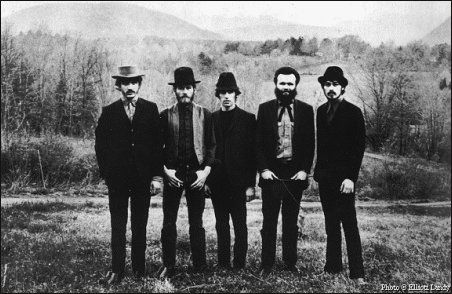Before Rosa Parks There Was Claudette Colvin
- Gabrielle Bossy

- Aug 14, 2014
- 3 min read

Ask any of your friends to name the heroes of the civil rights movement in the United States. Go ahead, ask. I’ll wait. Martin Luther King, Rosa Parks and Malcom X are all names that you likely heard but chances are one Claudette Colvin did not make the cut. Well what if I told you that nine months before Rosa Parks refused to get off the bus for a white person in Montgomery, her friend, fifteen year old Claudette Colvin, had done the same?[1] Colvin was arrested for refusing to give up her seat to a white woman but because the civil rights community was not organized to the same degree as nine months later, the event gained little traction in the United States.[2]
Crazy right? That’s what I thought when I watched a recent episode of Drunk History all about Colvin. It definitely inspired me to look it up.
Colvin’s arrest sparked a tiny interest in the black community of Montgomery- inspiring people to write into the National Association for the Advancement of Colored People (NAACP) about the amazing things Colvin had done. While the association thought a bus boycott was an excellent idea (and the idea had been raised prior to this), they felt that Colvin was not a suitable leader for the movement because of her age and also because she had become pregnant.[3] Rosa Parks, the secretary of NAACP and a woman who had become close with Colvin after hearing of her courage, was chosen to lead the movement and was instructed to refuse to move to the back of the bus as Colvin had. Unfortunately, Colvin found this out from an NAACP leaflet and not from Parks herself.[4]
This is not meant to undermine the achievement of Rosa Parks who did wonderful things for the civil rights movement, but rather to make note of the fact that there are often heroes who are not recognized. Barry Schwartz calls this “the power of oneness”-the idea that we tend to remember one individual to associate with a movement or event as others fall to the wayside. He points to other bus boycotts that happened prior to Parks and even Colvin including that of Irene Morgan, Jo Ann Robinson and Sarah Mae Flemming as examples.[5] I would take it one step further to say we also do this with villains. For example, Hitler did horrible things but let’s not forget about the many people like Christian Wirth and Himmler who committed awful crimes as well. Back to Colvin.
Later in 1956, Colvin participated as one of four plaintiffs in the Browder vs. Gayle case against the state of Montgomery. This case was responsible for the ruling that the bus segregation in Montgomery was unconstitutional.[6] In the end, she made a huge impact.
This story was a huge eye-opener for me as a historian. The “power of oneness” is something we all succumb to I think and I can only hope I am more aware now. As for the episode that inspired this blog, please check it out! This isn’t the whole thing but it’ll get you started.
[1] The Unsung Heroes of the Montgomery Bus Boycott, The Journal of Blacks in Higher Education, No. 50 (Winter, 2005/2006), p. 107.
[2] The Unsung Heroes of the Montgomery Bus Boycott, The Journal of Blacks in Higher Education, No. 50 (Winter, 2005/2006), p. 107.
[3] Carson Clayborne, “To Walk in Dignity: The Montgomery Bus Boycott”, OAH Magazine of History, Vol. 19, No. 1, Martin Luther King, Jr. (Jan., 2005), pp. 13-15
[4]Okay I’ll admit, I literally got this from Drunk History.
[5] Barry Schwartz, “Collective Forgetting and the Symbolic Power of Oneness: The Strange Apotheosis of Rosa Parks”,Social Psychology Quarterly, Vol. 72, No. 2 (Jun., 2009), pp. 123-142.
[6] http://www.biography.com/people/claudette-colvin-11378#arrested-for-violating-segregation-laws



Comments